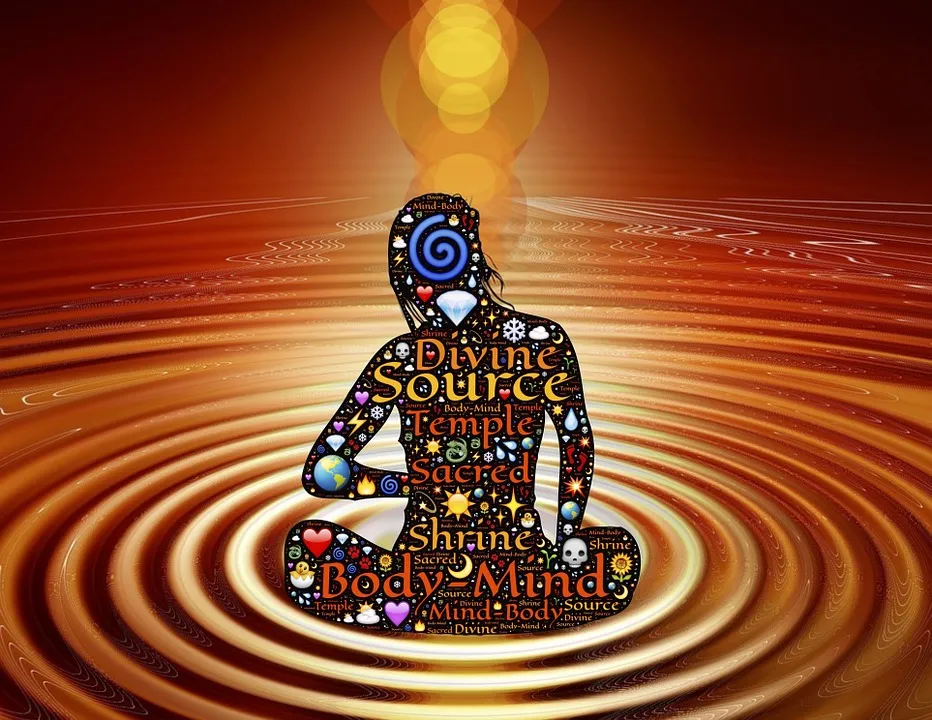One of the most enduring questions humans ask themselves is whether God is fair. Divine justice is a fundamental concept in countless belief systems, but it’s also one that raises challenging queries about what we expect from the Almighty. This post delves into the intricacies of this complex topic by exploring the concept of Divine Justice, the problem of evil, the role of free will and fate, human suffering, the afterlife, redemption and forgiveness, and ultimately prompts the reader to ponder whether there is fairness in God’s justice. Read on to learn more!
Understanding the concept of Divine Justice
When it comes to understanding the concept of divine justice, one must first recognize that justice is a fundamental part of God’s character. As Christians, we believe that God is all-knowing, all-powerful, and completely just in all of His ways. This means that His justice is always perfect, holy, and fair – even when it doesn’t make sense to us.

To better understand divine justice, it’s important to first define what justice means. Justice is the fair and equal treatment of all people, regardless of their social status, race, or ethnicity. In the same way, divine justice is the righteous and impartial judgment of God, who is the ultimate Judge of all humanity.
As Christians, we believe that God’s justice is perfect because it is rooted in His love for humanity. The Bible teaches us that God is not a vengeful God, but a just God who loves us and wants the best for us. This is why His justice is always tempered by His mercy and grace, which are extended to us through His son Jesus Christ.

Here are a few key points to keep in mind when trying to understand divine justice:
Divine justice is grounded in God’s holiness and perfect nature. God is the definer of what is right and wrong, and His justice is always in accordance with His character.
Divine justice is impartial and fair. God does not show partiality to anyone, and His judgment is always fair and equal.
Divine justice is tempered by His mercy and grace. God does not desire to punish us, but desires that we turn away from sin and find forgiveness and redemption through Jesus Christ.
Divine justice is ultimately about restoration and healing. God’s justice is not just about punishment, but about bringing wholeness and healing to a broken world.
In conclusion, understanding the concept of divine justice is an important part of our faith as Christians. While the idea of God’s justice can sometimes be daunting, it is important to remember that our God is a just and loving God. As we seek to know Him better and follow His ways, we can trust that His justice is always perfect, fair, and grounded in His love for us.
The problem of evil and its impact on our perception of God
As humans, we are conditioned to believe that fairness is a fundamental aspect of justice. We believe that wrongdoing should be punished and good deeds should be rewarded. But when it comes to understanding the concept of Divine Justice, we are often left struggling with the question: “Is God fair?”
One of the main issues that impact our perception of God’s fairness is the problem of evil. How can a loving and just God allow evil and suffering to exist in the world? The existence of human suffering, pain, and death creates several moral and philosophical dilemmas that challenge our beliefs.
Throughout history, various theories have been proposed to explain the problem of evil. Some argue that suffering is a result of divine punishment for sin, others say it is the result of human wrongdoing and moral decay. However, the most common explanation is that suffering is a necessary evil that serves a greater purpose, allowing individuals to grow and develop spiritually.
From an ethical standpoint, it is critical to note that we have free will, which is the ability to make decisions for ourselves. However, this raises another question: is everything predetermined, or do we genuinely have the power to choose and determine our destiny? Many believe in the idea of determinism, which states that everything that occurs in the universe is predetermined, including our actions.
The concept of free will plays a fundamental role in our understanding of fairness in divine justice. While God allows suffering, it is the result of our choices and actions. We can learn from our mistakes and grow from them, or we can continue to repeat them, contributing to the perpetuation of pain and suffering.
In conclusion, while the problem of evil and human suffering may challenge our beliefs about God’s fairness, it is essential to remember that we have free will. Our choices and actions have consequences, and it is up to us to play a role in creating a fair and just world. Remember that the existence of suffering is not necessarily a reflection of divine injustice, rather it serves a greater purpose in developing our spiritual growth.
Free will vs Determinism: The balance of choice and fate
As humans, we often grapple with the idea of free will vs determinism. Do we have control over our choices and the outcomes of our lives or is our fate predetermined? Many religious beliefs, including Christianity, acknowledge the existence of both free will and fate.

Here are some key things to consider:
Free will allows us to make choices based on our desires and beliefs. We are responsible for our actions and must face the consequences that come with them. However, the idea of free will can also be challenging. If we have complete control over our lives, why do bad things happen to good people? And if God is all knowing, can’t he intervene to prevent us from making bad choices?
Predetermination suggests that our lives are predetermined and that we have little control over our destiny. While we may have a predetermined path, it does not mean that we cannot make choices along the way. In Christianity, fate is often tied to the idea of a divine plan.
The balance between free will and fate is not always clear cut. As humans, we have the power to make choices, but some of those choices may lead us down a predetermined path that we have little control over. For example, we may choose to go to college, but the job opportunities we encounter after graduation may be limited due to factors outside of our control.
Ultimately, Christianity teaches us that even if our fate is predetermined, we are still responsible for our choices. We are given the ability to choose right from wrong, and we must use that ability to live meaningful lives.
When exploring the balance between free will and determinism, it’s important to keep an open mind. While Christianity does not offer a clear answer, it acknowledges the complexity of human existence and the importance of both free will and fate.
To summarize:
- Free will allows us to make choices based on our desires and beliefs.
- Predetermination suggests that our lives are predetermined and that we have little control over our destiny.
- The balance between free will and fate is not always clear cut.
- Even if our fate is predetermined, we are still responsible for our choices.
Remember, Christianity teaches us that our choices matter and that we have the power to make a positive impact on the world around us, regardless of whether our fate is predetermined or not.
Human suffering and the role of God in our lives
At some point in our lives, we’ve all asked the question, “Why is there suffering in the world?” As humans, it’s natural for us to want to understand why we experience pain and hardship, and more importantly, how God fits into the equation.
As Christians, we believe that God is all-knowing and all-powerful. So where does that leave us when we still experience suffering and pain? The truth is, we may never fully understand why God allows suffering in the world, but that doesn’t mean that He is absent or uncaring.
In fact, God often uses suffering to shape and mold us into who He wants us to be. In the Bible, James chapter 1 tells us, “Consider it pure joy, my brothers and sisters, whenever you face trials of many kinds, because you know that the testing of your faith produces perseverance. Let perseverance finish its work so that you may be mature and complete, not lacking anything.”
While the idea of finding joy in suffering may seem counterintuitive, it’s important to remember that God has a plan for each of our lives. Sometimes that plan involves pain and hardship, but ultimately, it’s all leading towards a greater purpose.
That being said, it’s also important to acknowledge that suffering is not always a direct result of God’s actions. The world we live in is broken and flawed, and as a result, we’re going to experience pain and tragedy. However, as believers, we can find comfort in knowing that we serve a God who is with us in our suffering.
As we navigate difficult seasons in our lives, it’s important to remember that God is not punishing us or causing us harm. In fact, Romans 8:28 reminds us that “in all things God works for the good of those who love him, who have been called according to his purpose.”

While we may not understand the reasoning behind our suffering, we can trust that God has a purpose for it. It’s through our struggles that we often grow the most, and it’s through our hardships that we can bring glory to God.
So if you’re currently experiencing suffering or hardship, know that you’re not alone. God sees you, He cares for you, and He’s with you every step of the way. Keep leaning into Him and trusting in His plan, even when it’s hard.
The afterlife and questions of reward and punishment
When it comes to the afterlife, many people have questions about what happens to us when we pass away. Is there really a heaven and a hell? And, if so, how does God decide who goes where?
Here are five key things to keep in mind when thinking about questions of reward and punishment in the afterlife:
God is just, but also merciful. Throughout the Bible, we see that God is both just and fair, punishing those who deserve it and rewarding those who do good. However, we also see numerous examples of God’s mercy and forgiveness, even to those who have done wrong. This means that while we may be held accountable for our actions in the afterlife, there is also ample opportunity for us to be forgiven and redeemed.
Our actions on Earth matter. While we cannot earn our way into heaven by doing good deeds, our actions on Earth do matter and are taken into account when it comes to the afterlife. This is because our actions reveal the state of our hearts and whether or not we are truly living according to God’s will.
The afterlife is not just about reward and punishment. While many people focus on the idea of heaven and hell as places of reward and punishment, the afterlife is actually about much more than that. It is a time when we will be reunited with God and will experience the fullness of his love and grace. This is a reward in and of itself, regardless of any specific eternal destinations.
The ultimate judge is God, not us. While it can be tempting to judge others and decide who is deserving of punishment or reward, the truth is that only God knows the state of a person’s heart and the circumstances surrounding their actions. This is why it is so important for us to focus on our own relationship with God and leave the judging to him.
Our beliefs about the afterlife shape how we live. Ultimately, our beliefs about the afterlife have a big impact on how we live our lives here on Earth. If we truly believe in God’s justice and mercy, for example, we may be more likely to extend those same qualities to others in our own lives.

In summary, the afterlife is a complex topic with many different perspectives and beliefs. While there are certainly questions of reward and punishment to consider, it is important to remember that the afterlife is ultimately a time when we will be reunited with God and experience his love and grace to the fullest extent.
Redemption and forgiveness: Are they always possible?
As humans, we all make mistakes and fall short of the moral standards we set for ourselves. In religion, this can lead to feelings of guilt or shame, and a desire for redemption and forgiveness. But are these always possible?
In Christianity, the concept of redemption and forgiveness is central to the faith. The belief is that through the sacrifice of Jesus Christ, all people have the opportunity to be forgiven for their sins and achieve salvation. This forgiveness is available to everyone, regardless of the severity of their transgressions.
However, forgiveness doesn’t always come easily. It requires a genuine understanding of the harm caused, remorse for one’s actions, and a willingness to make amends and strive to do better in the future. This can be a difficult process and isn’t always achievable.
That being said, forgiveness isn’t just about the person seeking it. It’s equally important for the person doing the forgiving. Holding onto anger and resentment can be toxic and hinder personal growth. Forgiveness allows for healing and the ability to move forward with love and compassion.

It’s also important to note that while forgiveness may be possible, it doesn’t necessarily mean that the consequences of one’s actions can be fully erased. Karma, or the idea of cause and effect, plays a role in many religions. Even if one is forgiven by God or the people they’ve wronged, there may still be earthly consequences to face.
At the end of the day, redemption and forgiveness are complex concepts that require nuance. While they may not always be possible or easy to achieve, they are important goals to strive for in the pursuit of personal growth and a deeper connection with the divine.














